
Rice, Baylor part of research effort to advance genome editing
Researchers from Rice University and Baylor College of Medicine are part of a national effort to accelerate genome-editing research and develop gene-editing technologies and therapies.

Rice, Baylor part of research effort to advance genome editing
Researchers from Rice University and Baylor College of Medicine are part of a national effort to accelerate genome-editing research and develop gene-editing technologies and therapies.

Bioengineer wins NIH grant to attack cystic fibrosis
Rice chemical and biomolecular engineer Xue Sherry Gao wins a National Institutes of Health grant to develop gene editing to treat cystic fibrosis.
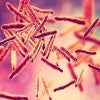
Study could explain tuberculosis bacteria paradox
Tuberculosis bacteria have evolved to remember stressful encounters and react quickly to future stress, according to a study by computational bioengineers at Rice University and infectious disease experts at Rutgers New Jersey Medical School.

Laura Segatori named AIMBE fellow
Rice bioengineer Laura Segatori has been named a fellow of the American Institute for Medical and Biological Engineering.
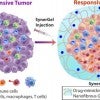
UTHealth, Rice advance oral cancer immunotherapy
Researchers at Rice and the University of Texas Health Science Center at Houston develop a hydrogel that could destroy oral cancer tumors.

Junghae Suh named AIMBE fellow
Rice bioengineer Junghae Suh has been named a fellow of the American Institute for Medical and Biological Engineering.
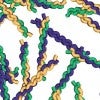
Collagen structures get the royal reveal
An algorithm by Rice University scientists predicts the structures and melting temperatures of collagen, the triple helix that accounts for about a third of the body’s proteins and forms the fibrous glue in skin, bones, muscles, tendons and ligaments.
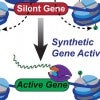
New CRISPR tech targets human genome’s complex code
Rice bioengineers harness the CRISPR/Cas9 system to program histones, the support proteins that wrap up and control human DNA, to manipulate gene activation and phosphorylation. The new technology enables innovative ways to find and manipulate genes and pathways responsible for diseases.
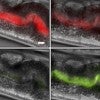
Light flips genetic switch in bacteria inside transparent worms
Researchers from Rice University and Baylor College of Medicine have shown that colored light can both activate and deactivate genes of gut bacteria in the intestines of worms. The research shows how optogenetic technology can be used to investigate the health impacts of gut bacteria.
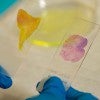
AI-powered microscope could check cancer margins in minutes
Researchers from Rice University and MD Anderson Cancer Center have created a microscope that uses artificial intelligence to quickly and inexpensively image large tissue sections at high resolution with minimal preparation. If clinically validated, the DeepDOF microscope could allow surgeons to inspect tumor margins within minutes.
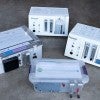
Rice's Pumani hailed for reaching 1 million babies
Rice global health institute's low-cost, neonatal CPAP joins Global Innovation Exchange's Million Lives Club.
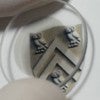
Rice physicist shares grant to advance imaging
The lab of physicist Junichiro Kono will share in a $1 million grant from the Chan Zuckerberg Initiative to improve imaging of proteins, cells and tissues.